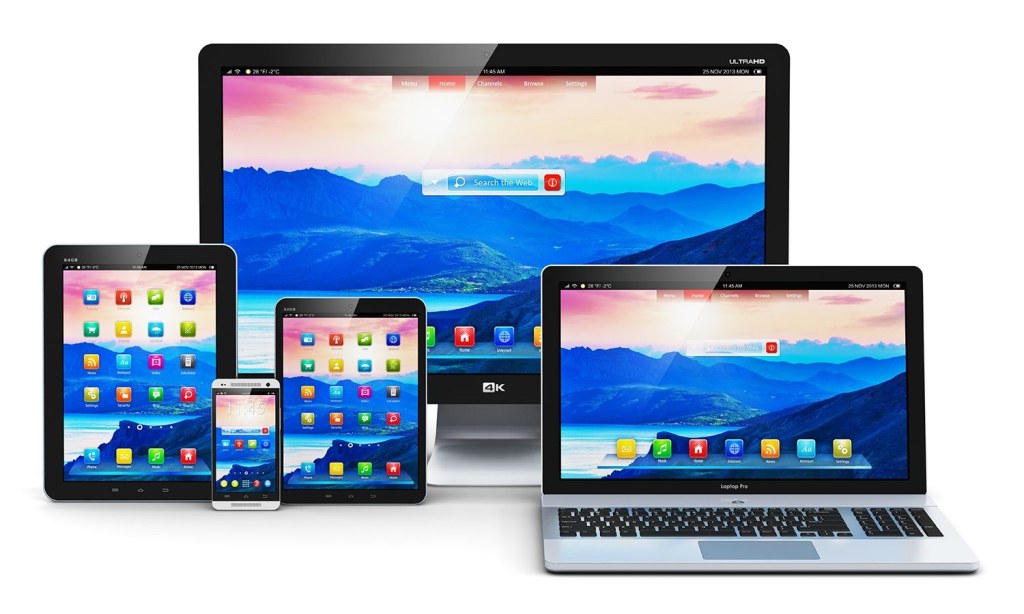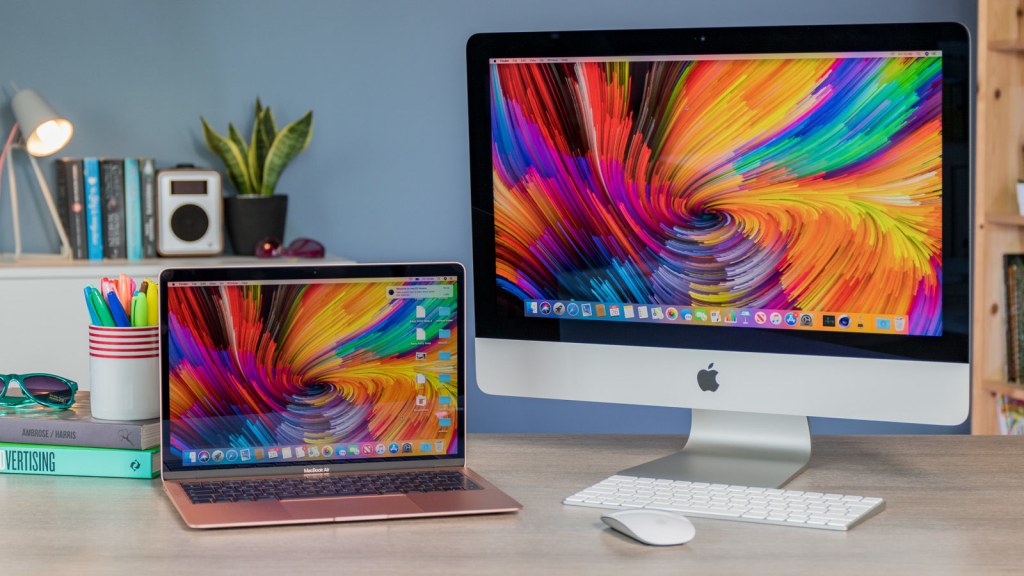Desktop PCs, Laptops, and Macs: A Comprehensive Guide
Introduction
Dear Readers,
Welcome to our comprehensive guide on desktop PCs, laptops, and Macs. In this article, we will delve into the world of personal computers and provide you with valuable insights and information. Whether you are a technology enthusiast, a student, or a professional, this guide will help you understand the nuances of desktop PCs, laptops, and Macs.
Without further ado, let’s dive into the world of computing!
What are Desktop PCs, Laptops, and Macs?

Image Source: crucial.de
🖥️ Desktop PCs, laptops, and Macs are computing devices that have revolutionized the way we live and work. These devices are designed to perform various tasks, ranging from simple web browsing to complex graphic designing and video editing.
🖥️ Desktop PCs are stationary computers that consist of a tower or a case containing the CPU, motherboard, and other internal components. They are ideal for tasks that require high processing power and are commonly used in offices and homes.
🖥️ Laptops, on the other hand, are portable computers that integrate the CPU, motherboard, and other components into a single unit. With the advancement of technology, laptops have become increasingly powerful and are suitable for tasks that require mobility.

Image Source: macworld.com
🖥️ Macs, developed by Apple Inc., are a line of personal computers that run on the macOS operating system. Known for their sleek design, reliability, and user-friendly interface, Macs are popular among creative professionals and individuals who seek a seamless computing experience.
Who Uses Desktop PCs, Laptops, and Macs?
👥 Desktop PCs, laptops, and Macs are used by a wide range of individuals, including students, professionals, gamers, and enthusiasts. Students rely on these devices for research, assignments, and online learning. Professionals use them for work-related tasks, such as word processing, spreadsheet management, and video conferencing. Gamers enjoy the immersive gaming experience offered by desktop PCs and laptops. Enthusiasts, on the other hand, explore the capabilities of these devices by experimenting with programming, graphic design, and other hobbies.
When Were Desktop PCs, Laptops, and Macs Invented?
⌛ Desktop PCs have a long history, with their origins dating back to the 1940s and 1950s. The first electronic general-purpose computer, the ENIAC, was developed during this period. Since then, desktop PCs have evolved significantly, becoming smaller, faster, and more powerful.
⌛ Laptops, also known as portable computers, were introduced in the 1980s. The Grid Compass 1101, released in 1982, is considered the first laptop. It weighed around 5 kilograms and featured a clamshell design, a keyboard, and a display. Over the years, laptops have undergone numerous advancements, becoming thinner, lighter, and more efficient.
⌛ Macs, originally introduced in 1984, have played a significant role in the evolution of personal computing. The Macintosh, commonly known as the Mac, was the first commercially successful personal computer to feature a graphical user interface. Since then, Macs have become synonymous with innovation and have garnered a loyal fan base.
Where Can You Find Desktop PCs, Laptops, and Macs?
🌍 Desktop PCs, laptops, and Macs are widely available and can be purchased from various sources. They can be found in electronics stores, computer specialty shops, and online marketplaces. Major manufacturers, such as Dell, HP, Lenovo, Apple, and Asus, offer a wide range of options to cater to different needs and budgets.
Why Choose Desktop PCs, Laptops, and Macs?
❓ There are several reasons why individuals choose desktop PCs, laptops, and Macs over other computing devices:
❓ Desktop PCs offer unparalleled performance and customization options, making them ideal for demanding tasks.
❓ Laptops provide the convenience of mobility, allowing users to work or entertain themselves on the go.
❓ Macs are renowned for their innovative design, intuitive user interface, and seamless integration with other Apple devices.
❓ All three options offer a wide range of software compatibility, ensuring that users can access the applications and programs they need.
❓ Finally, desktop PCs, laptops, and Macs are reliable and durable, making them a long-term investment.
How Do Desktop PCs, Laptops, and Macs Work?
🔧 Desktop PCs, laptops, and Macs operate on the same fundamental principles. They consist of hardware components, such as processors, memory, storage, and input/output devices, that work together to perform tasks.
🔧 The operating system, whether it be Windows or macOS, manages the hardware resources and provides a user-friendly interface for interaction.
🔧 When a user executes a command or launches an application, the processor carries out the required calculations, while the memory stores the data and instructions. The storage devices, such as hard drives or solid-state drives, retain files and programs for future use.
🔧 The input/output devices, such as keyboards, mice, and displays, allow users to interact with the computer and receive visual and audio feedback.
Advantages and Disadvantages of Desktop PCs, Laptops, and Macs
Advantages:
👍 Desktop PCs offer unmatched performance and can be easily upgraded.
👍 Laptops provide portability and allow users to work from anywhere.
👍 Macs are known for their sleek design, user-friendly interface, and optimal integration with Apple’s ecosystem.
Disadvantages:
👎 Desktop PCs require a dedicated workspace and are not easily portable.
👎 Laptops have smaller screens and limited upgradability compared to desktop PCs.
👎 Macs tend to be more expensive than their Windows counterparts.
Frequently Asked Questions (FAQs)
1. 🙋♂️ Question: Can I upgrade the components of a desktop PC?
Answer: Yes, desktop PCs are highly customizable, and you can easily upgrade components such as the processor, memory, and storage.
2. 🙋♀️ Question: Can I play resource-intensive games on a laptop?
Answer: Yes, many laptops are specifically designed for gaming and can handle resource-intensive games with ease. However, it is advisable to check the system requirements of the game before making a purchase.
3. 🙋♂️ Question: Are Macs compatible with Windows software?
Answer: While Macs primarily use macOS, they can also run Windows through virtualization or dual-booting. Additionally, many software developers offer versions of their applications that are compatible with macOS.
4. 🙋♀️ Question: Are desktop PCs more secure than laptops?
Answer: Both desktop PCs and laptops can be secured with antivirus software and regular updates. However, desktop PCs tend to offer more customization options for advanced security measures.
5. 🙋♂️ Question: Can I use a laptop as a replacement for a desktop PC?
Answer: Yes, laptops can serve as a suitable replacement for desktop PCs, especially for individuals who require mobility and do not need high processing power.
Conclusion
In conclusion, desktop PCs, laptops, and Macs have revolutionized the way we live and work. Whether you need high-performance computing, portability, or a seamlessly integrated ecosystem, there is a device that suits your needs. Consider your requirements, budget, and personal preferences when making a decision. Embrace the power of technology and unlock endless possibilities with desktop PCs, laptops, and Macs!
Final Remarks
Dear Readers,
We hope this comprehensive guide has provided you with valuable insights into the world of desktop PCs, laptops, and Macs. Remember to keep your devices updated, secure, and well-maintained to ensure optimal performance. If you have any further questions or require assistance, feel free to reach out to us. Happy computing!